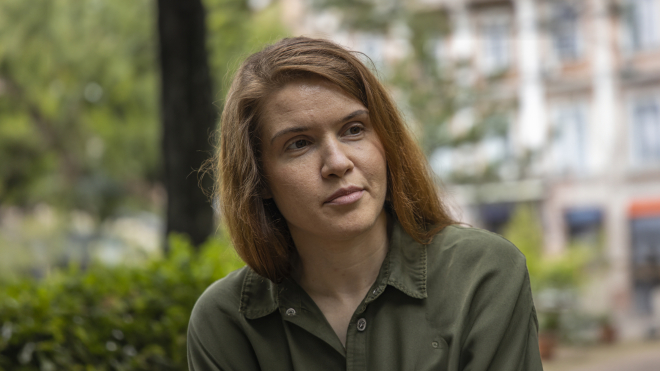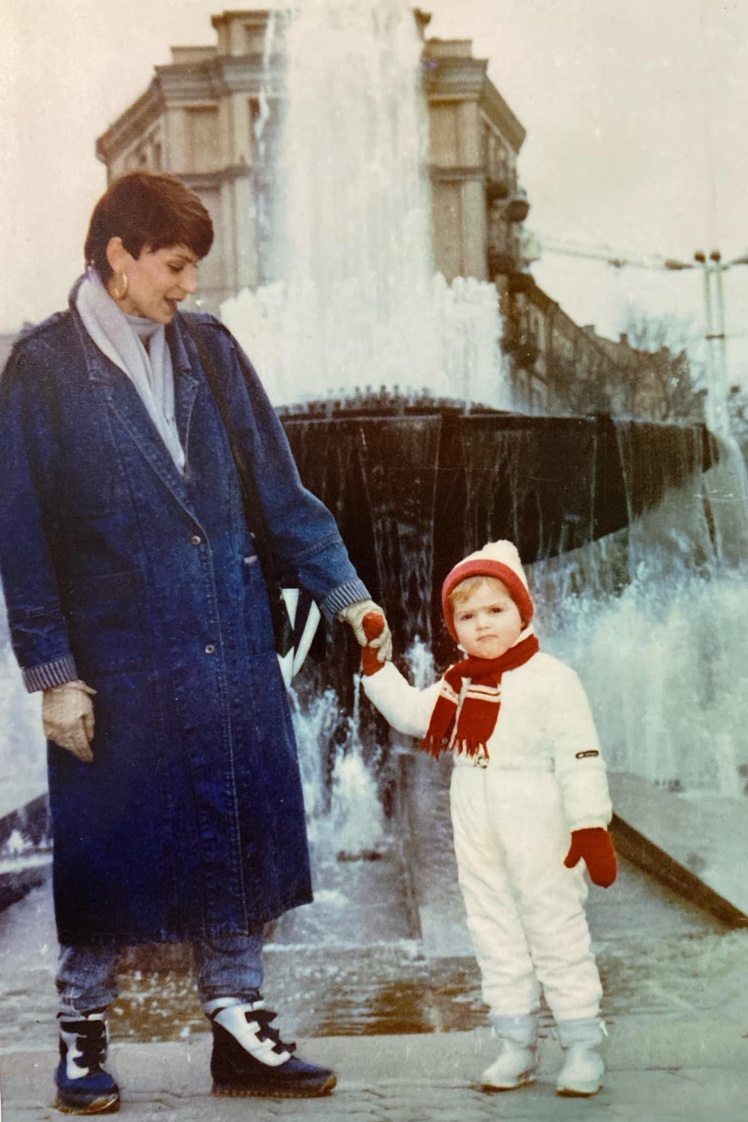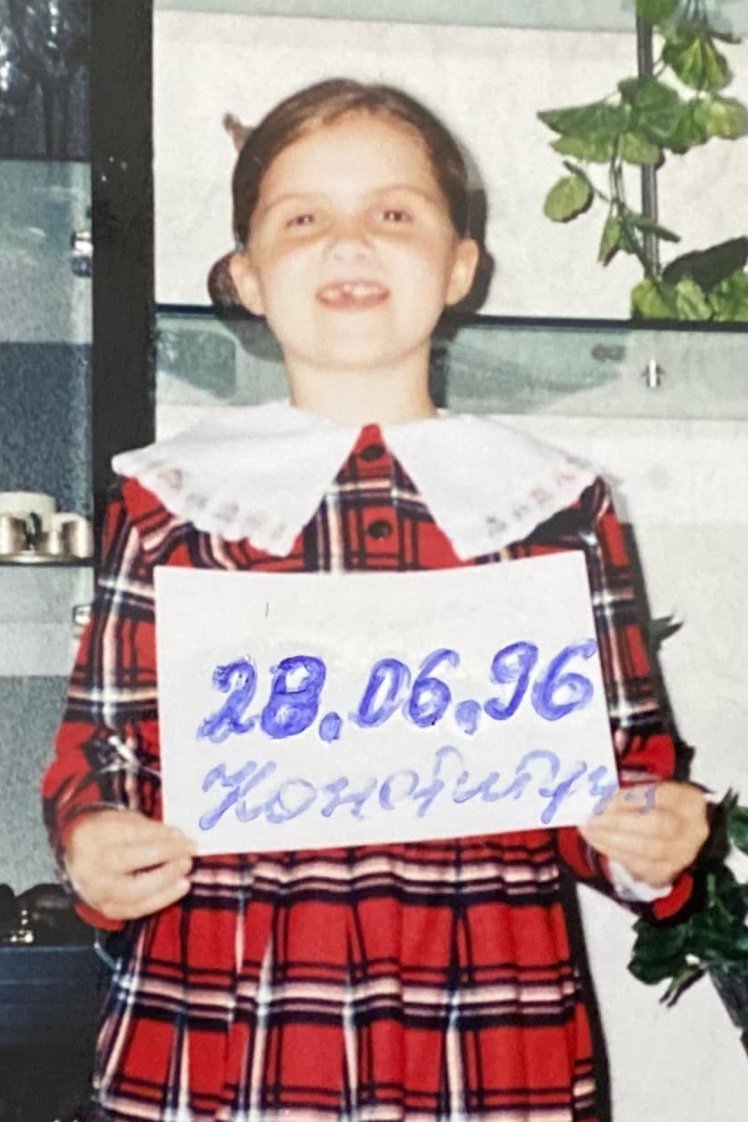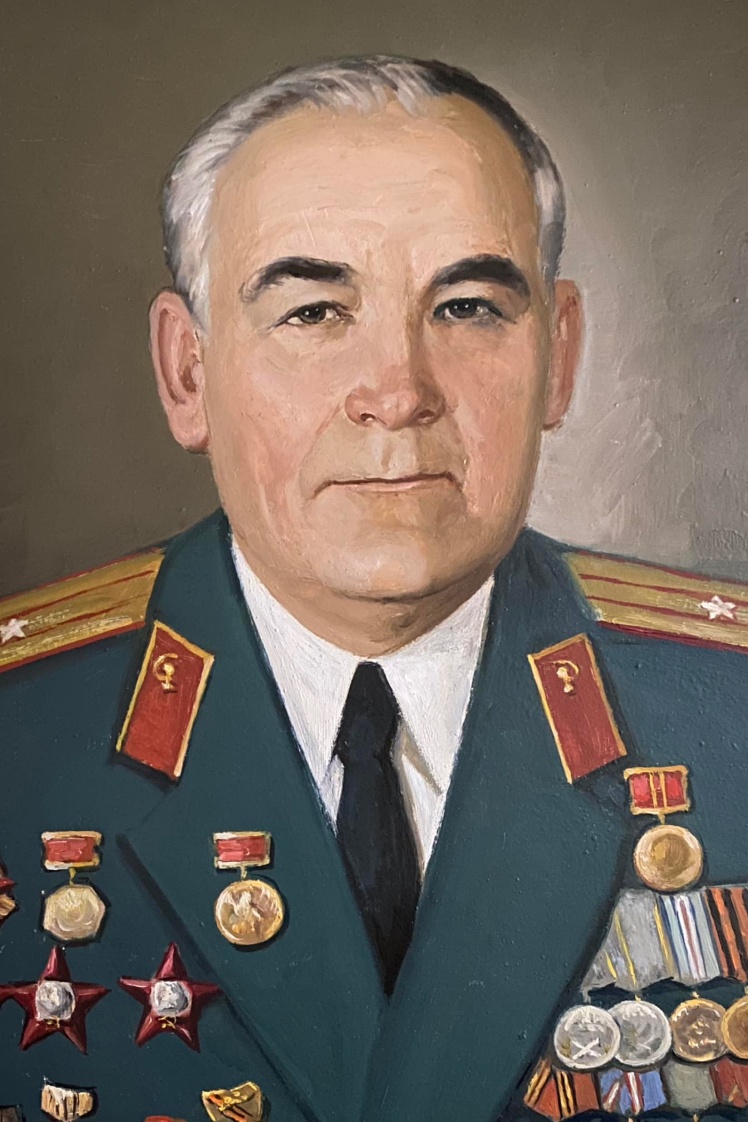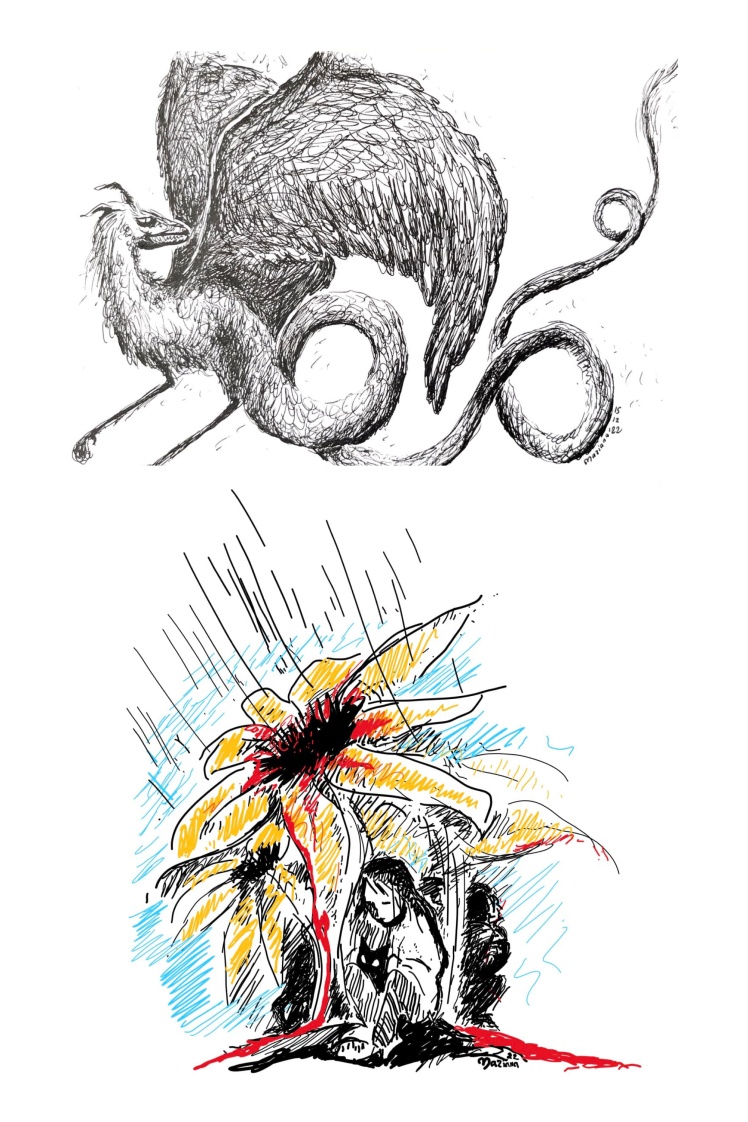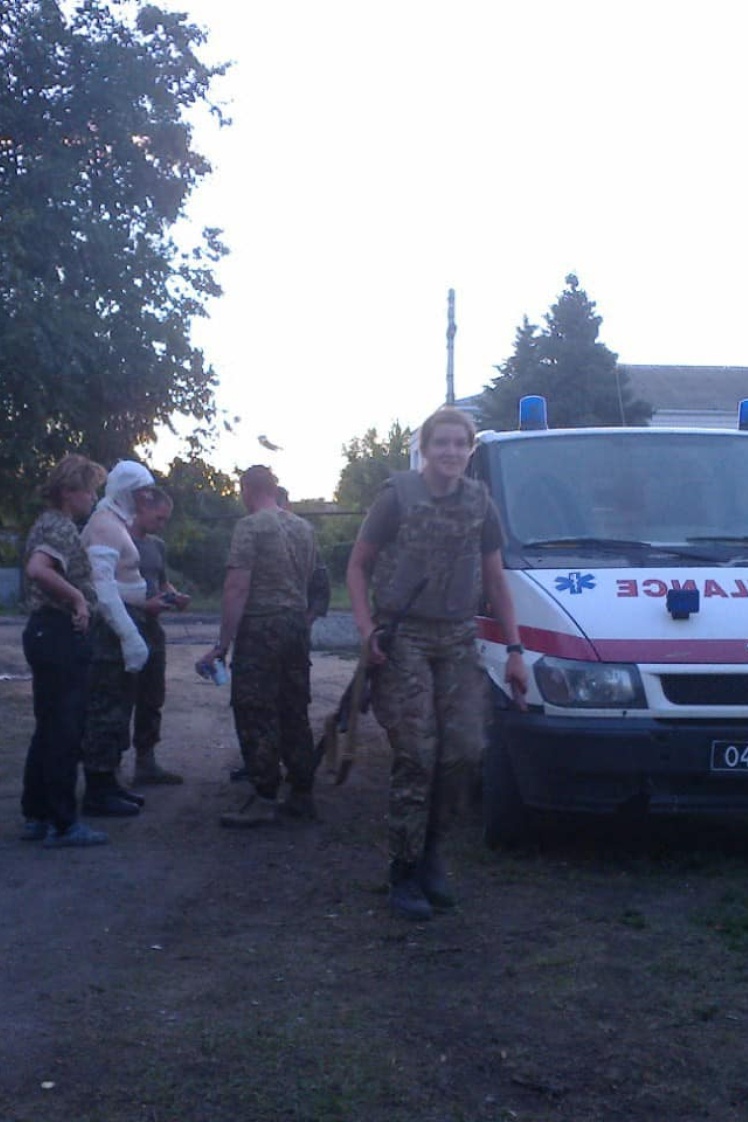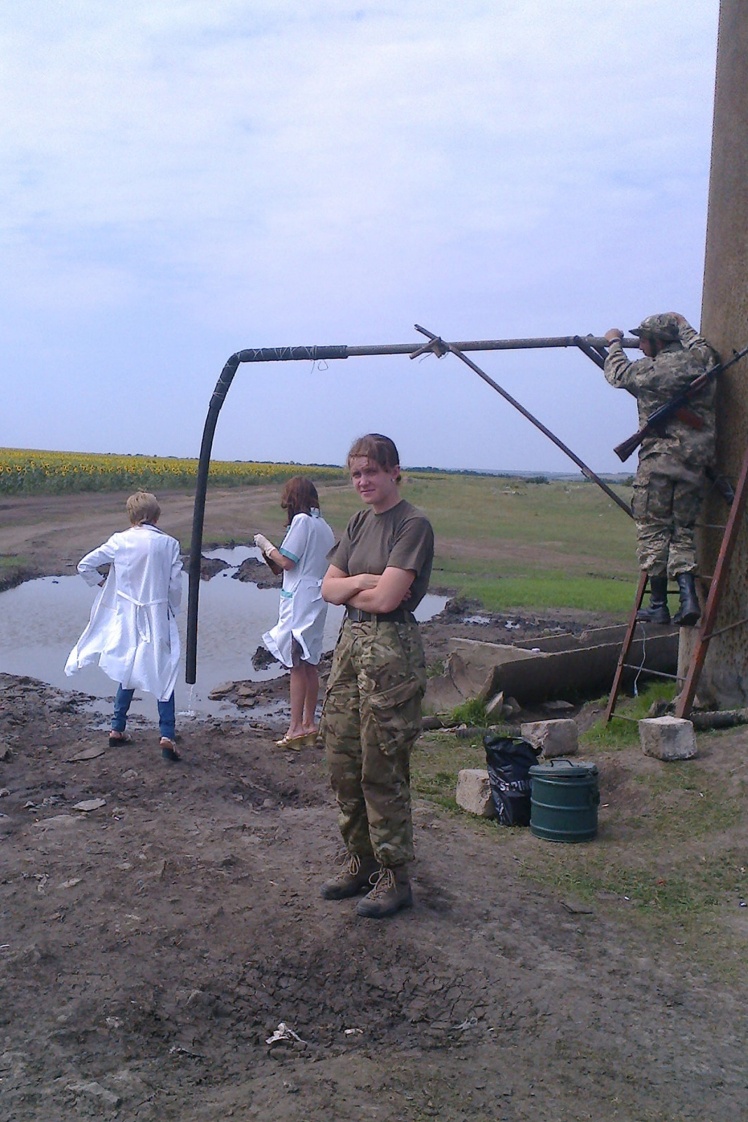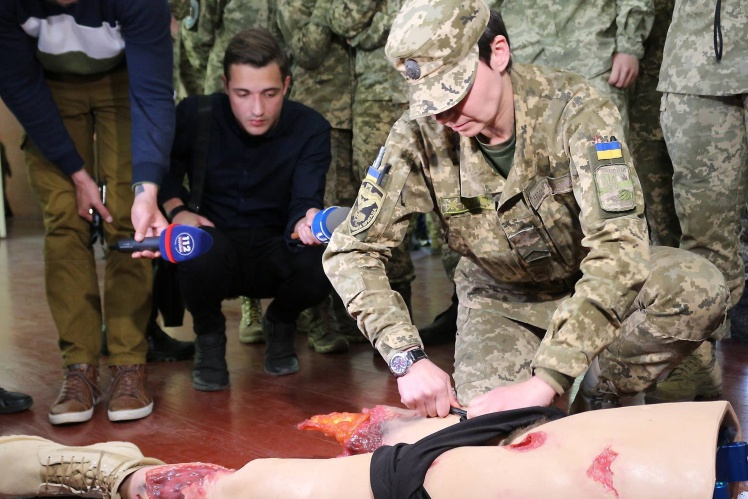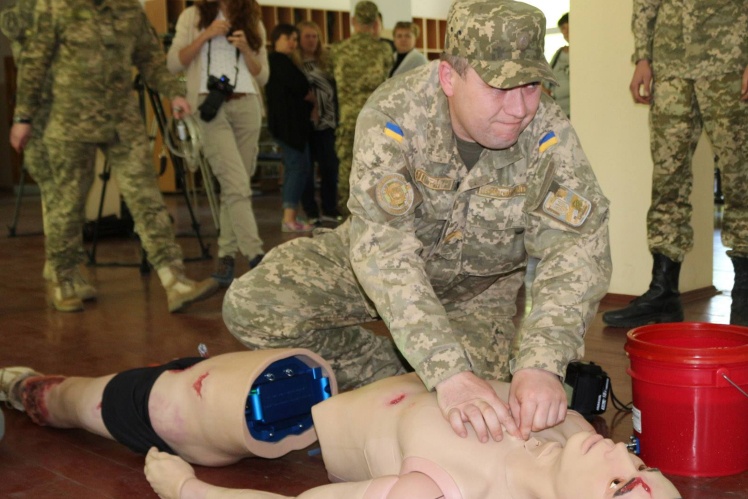Family
Mariana Bezuhla is a girl from a good Kyiv family. Her mother, Valentyna Tereshchenko is a doctor, professor, former head of the department at Bohomolets Kyiv Medical University. Mariana calls her "Miss Professor".
Mariana Bezuhla with her mother Valentyna Tereshchenko. Mariana signed this photo "Miss Professor". Little Mariana on the day when the Ukrainian Constitution was adopted. He says that the parents closely followed the meeting of the parliament that night.
Facebook / «Бабель»
Father Volodymyr Bezuhly is a businessman, one of his many assets is the Kyiv Granit plant. In the 90s, at the request of a friend, then the head of the medical service of the Ministry of Internal Affairs of Ukraine, Oleh Petrash, Bezuhly became a co-founder of the Fund for retirees of the Ministry of Internal Affairs and left it in 2022.
The family traveled a lot, Mariana visited 50 countries with her parents. She studied at the prestigious Kyiv Gymnasium #117 with in-depth study of foreign languages. Native Kyivans call it a "school for the intelligentsia" — the gymnasium is located between the building of Presidentʼs Office and Khreshchatyk, and the children of artists, scientists and politicians who live in the historical center of the city often get there "by registration". Mariana learned English well at school, has an average level of German, and knows French less than that. Good English largely determined her future career. Bezuhla loved to study, she graduated from school with a gold medal.
Mariana dreamed of becoming an artist, but entered the university where her mother later worked — the Bohomolets National Medical University. There was another doctor in the family — the grandfather on the fatherʼs side. He worked in a Kyiv hospital as a military surgeon. He went through the entire Second World War, being mobilized on June 23, 1941.
Mariana Bezuhlaʼs grandfather was a military doctor, this portrait is a gift made by his patient. Bezuhla wanted to be an artist, so she sometimes hastily continues to paint. She posts some pictures on Facebook, but says that she is hated for that as well.
Facebook / «Бабель»
Bezuhla studied at the First Medical Faculty, majoring in "Medical care". One of her fellow students, who asked not to be named, recalls: Bezuhla was an ordinary girl, moderately sociable — there was no time for any adventures as everyone studied from morning to evening. Despite her wealthy parents, she dressed herself modestly. In the summer of 2007, during the third year of studying, she did an internship in Warsaw. Since all doctors are eligible to get conscripted, Bezuhla graduated from the military department at the university and received the rank of officer.
Bezuhla at the medical university with fellow students.
Facebook / «Бабель»
In 2011, she graduated from the university with a red diploma. Then there was an internship, in particular at the Ukrainian Military Medical Academy. Since 2011, Bezuhla worked and later wrote her PhD in the polyclinic of the State Administration of Affairs, where members of parliament, ministers and diplomats are treated. When asked how the young doctor got to such a difficult polyclinic, Bezuhla answers that she came there because of the scientific supervisor, with whom she wrote a thesis in the last year of the university, and later — a candidateʼs thesis.
However, she did not have time to defend her candidacy. In the spring of 2015, Bezuhla, as a conscript, received a summons to the military commissariat and within a few days found herself in the school. Her parents were not happy with her decision: they envisioned their daughterʼs future differently.
Military service
The training lasted a month. There, mobilized medics were trained in tactical medicine and told how to organize the battalionʼs medical service. After training, Bezuhla was sent to the 128th separate mountain infantry brigade in Transcarpathia, to the mechanized battalion. The commander of the brigade at that time was Serhiy Shaptala, who now heads the General Staff. In her posts, Bezuhla calls him the "gray cardinal of the Armed Forces of Ukraine". However, she says, these are not some accounts from the past — then she, a "mere mortal", did not communicate with the brigade commander, it was not the right level.
Bezuhla together with her former battalion commander Denys Chayuk. Now he is a brigadier general.
Facebook / «Бабель»
In 2015, the 128th Brigade did not send women to the front line. To Bezuhla, this decision seemed, to put it mildly, strange — she did not understand why she was sitting in Uzhhorod, and wrote a report with a request to send her to war zone. After more appeals, she and several other mobilized women were sent to sector "A" — this is the Luhansk region. She served in Chervony Zhovten (now Sotenne) and Stanytsia Luhanska, but not for long.
In 2015, after numerous reports, Bezuhla was sent to the war zone in the Luhansk region. She served there for several months.
Facebook / «Бабель»
In 2015, technical assistance from Western partners began to arrive in Ukraine. In August 2015, the United States transferred the EMEDS Basic field hospital to the Armed Forces for $7.5 million. It could be quickly deployed near the front line and quickly help even the seriously wounded. The hospital was handed over on the condition that the command would assemble a team of medics who would undergo training with American instructors. The states, in turn, promised to provide the hospital with medicines and everything necessary for a year ahead. Doctors were selected based on their level of English. Bezuhla passed this criterion and found herself at the Zhytomyr training ground. When it ended, and the hospital was ceremoniously handed over to the Ministry of Defense, trained medics were dismissed to their units without any explanation. No one understood where the hospital went.
The field hospital, which was a gift from the Americans, was where Bezuhla was trained.
Journalists returned to this topic in 2016. Volunteers found a hospital in Kostyantynivka, Donetsk region, 30 kilometers from the frontline. There were no injured people there. Members of parliament also tried to understand the incomprehensible story — they conducted their own investigation and interviewed Bezuhla. According to the recollections of one of the participants in the investigation, she did not give new information, but was very indignant. Later, she will mention that it was this episode with the hospital that pushed her to join reforms in the Ministry of Defense of Ukraine.
For Bezuhla, who was very active during her studies with the Americans and tried to organize something outside the program, the story did not end there. Employees of the medical department of the General Staff drew attention to her — she was seconded to them, and later transferred to the medical department of the Ministry of Defense. In both departments, she was the only one who spoke English fluently — because of this, she was assigned to be responsible for international activities. Bezuhla contacted Western partners, including the NATO Office, accompanied various projects.
In the spring of 2016, the period of mobilization of her wave ended. Bezuhla was offered to sign a contract with the Ukrainian Armed Forces, but she refused and chose a civilian career in the medical department of the Ministry of Defense under the leadership of Andrii Verba. It was he, together with Defense Minister Stepan Poltorak, who in 2016 recommended Bezuhla to the Project Office of Reforms under the Ministry of Defense. Its specialists, with the support of Western donors, coordinated and implemented reforms in the Ministry. Andrii Zahorodniuk became the head of the Office. Bezuhla was entrusted with the medical direction. She and her team focused on two key issues — the launch of centralized tactical medicine training for all military personnel and the unification of the medical departments of the Ministry of Defense and the General Staff into one.
Former colleagues of Bezuhla, with whom "Babel" talked, recall: from the very beginning, she was very goal-oriented, worked a lot, often without days off. At work, she talked a lot with foreign advisers — she listened to some of them, and openly criticized those whom she considered ineffective. Thanks to Bezuhlaʼs team, the 205 training center opened in 2017, where soldiers of the Armed Forces of Ukraine were trained in tactical medicine.
The 205th training center of tactical medicine, which was created in 2017.
Facebook / «Бабель»
The next project was the unification of the medical departments of the Ministry of Defense and the General Staff into one service. It was not easy — the staff soldiers inserted sticks into the wheels. "Just imagine how much strength you need to have to break the system in the Ministry of Defense and the General Staff," says another former employee from the Office of Reforms about Bezuhla.
In 2017, Andrii Zahorodniuk decided to resign from the position of head of the Office. There were several candidates for his place, including Bezuhla, but colleagues opposed her. There was only one reason — Maryana was very efficient at work, but she did not know how to play in a team at all. "She was always a loner, always alone, and sooner or later such people start to conflict in the team," explains one of her former colleagues in the Office.
Not anonymously and directly, Oleksiy Gordeev, who joined the Reform Project Office in 2017 and was engaged in communications there, tells us about Bezuhla at that time. "She was very self-confident and unapologetic. It was difficult to communicate, because only her vision of the processes was correct, and it was impossible to adjust it," he recalls. For Gordeev Bezuhla was a typical control freak, a person who strives to keep everything under control. When other managers only agreed on the general content of the messages, Bezuhla controlled just each letter. This and her commanding tone of communication were dissonant with the atmosphere of the Office. She had no friends there. And it seems that she did not suffer from this — the main thing for her was the work result.
As a result, the Office was headed by Diana Petrenya. Bezuhla did not forgive her colleagues for this and began to send her work reports directly to British donors, and not to the head of the Office, like other managers. In the end, Bezhula decided to leave — she agreed with the Minister of Defense Stepan Poltorak that she would remain in the department, but would cover the current medical projects herself. In January 2018, with her participation, the Main Military Medical Administration was created in the Armed Forces, a project on which she and her colleagues worked in the Office of Reforms.
Parliamentary elections
In the summer of 2019, newly elected President Volodymyr Zelenskyy dissolved the parliament and called early elections. At that time, Bezuhla did not know Zelensky or anyone from Kvartal comedy production company which he headed, but she thought that it was time to do something substantial for the country. "My comfort zone is changes. Iʼm not afraid of them," she explains her choice.
Some former colleagues were surprised by her decision to become a member of parliament, but Bezuhla traditionally did not consult with anyone and simply confronted her parents with the facts. Her father asked if she needed help or money, she said no. In general, Bezuhla likes to repeat that the familyʼs assets have nothing to do with her.
Bezuhla decided to enter the parliament as part of the presidentʼs team.
Facebook / «Бабель»
Recommendations were given to her by the head of the military medical department, Ihor Khomenko, with whom she worked on the unification of the medical forces of the General Staff and the Ministry of Defense of Ukraine. The selection of candidates for deputies took place in several stages. Bezuhla conducted one of the interviews online from New Zealand, where she was on a business trip from the Ministry of Defense.
In Kyiv, two groups were engaged in the selection of candidates. The first included former head of the Presidentʼs Office Andriy Bohdan and his friend, businessman Andriy Vavrysh. The second is Andriy Kholodov, the owner of a chain of cigarette kiosks located at public transport stops, as well as Artem Kultenko, a businessman associated with this "market". Journalists and some deputies from the "Servant of the People" call both of them people of the then presidential assistant, and now the head of the Office of the President Andriy Yermak. In 2014, he created and headed the Association of Entrepreneurs of Kyiv, which protected the interests of kiosks owners and workers.
Three Babel sources say that Kholodov brought Bezuhla to the "Servant of the People". She herself says that she met him only at an interview. Kholodov and Kultenko collected the documents of the candidates, selected the suitable ones and handed over the papers to the preparation group. There, the applicants were checked — mainly they googled, looked at certificates from the Ministry of Internal Affairs and the Security Service of Ukraine. As sources in the party tell Babel, when presenting Bezuhla at the headquarters, Kholodov and Kultenko said that "the girl is resourceful." What exactly was meant — her experience or her fatherʼs money — no one clarified.
When the lists of majoritarian candidates were formed, the ones from Kyiv were presented to the president — and Bezuhla was among them. "Of course, I could not draw any conclusions about him as a person then... It was a complex and contradictory image," she wrote about that meeting three years later.
Bezuhla was one of the last to make it to the final list of Kyiv majoritarians — she got district 217 in Obolon. "There, a woman, a doctor and a security guard were put up as rivals of the "servants". So I was the best fit: I was a woman, a doctor, and served in the army — it was a pragmatic choice," she says now. She spent 50 thousand hryvnias of her savings on the election campaign, the party gave her the rest — 1.9 million hryvnias.
Election campaign.
Facebook / «Бабель»
Bezuhla got a district with a history. Vadym Stolar, a businessman who was called a "watcher of Kyiv", ran twice there before. In 2012, he lost to the candidate from "Batkivshchyna" party Oleksandr Bryhynets, and in 2014 — to the then commander of the "Azov" regiment, Andriy Biletskyi. In the 2019 elections, Stolar decided not to take any risks and went as number 11 on the list of the "Opposition Platform — For Life". And his relative Lyudmila Kostenko ran in this district from "European Solidarity" party. Babelʼs interlocutor in the "servants" party says on condition of anonymity that perhaps Bezuhla was part of the agreement between Kholodov and Stolar — the latter hoped that the unknown girl would lose to his protégé. However, Bezuhla won: she was supported by 38.4% of voters, and Kostenko — only by 21.35%.
The election was not without scandal. The civil network OPORA said that the agitators of the "servants" asked people to subscribe to the social networks of Bezuhla and another majoritarian from the party, Anna Purtova, in exchange for gifts — caps and T-shirts. Petro Poroshenkoʼs TV channel "Pryamiy" picked up this topic and made a story on it. Bezuhla says that it was the first military baptism of the biased media coverage. At the press conference, she stated that some of the people in the plot are connected to the EU — the political power of Poroshenko and her rival Kostenko, and the campaign materials — caps and T-shirts — were so cheap that they could not be considered a bribe.
Work in the parliament: intelligence and SBU reforms
From the first days of working in the parliament, Bezuhla impressed many colleagues. Really impressed, not shocked, as later. The interlocutors of Babel say: she worked a lot, concentrating on four or five large draft laws at the same time, proofreading them to the last letter. But her character and ambitions havenʼt changed. She herself chose the direction of work — she became the deputy chairman of the committee on national security, defense and intelligence and headed the subcommittee on civil democratic oversight and control. It is by chairing this subcommittee that she will later explain her functions as an auditor at the front and meetings with the military.
Work in the committee. Bezuhla is next to the "boss" — the head of the committee Oleksandr Zavitnevych.
Facebook / «Бабель»
Bezuhla immediately took on two major projects — intelligence reform and SBU reform. There were already developments in intelligence, they had to be structured and a law passed — Bezuhla launched a working group. "She is an ideologue and the author of the new law on intelligence (it was adopted in 2020) — our special services now live by it and have the opportunity to conduct many operations, including abroad," the head of the "servants" faction, David Arakhamia, told Babel. In particular, this law allowed to raise the salary of employees of special services and protected agents who help intelligence. Bezuhla recalls that before the second reading, she felt the information attacks of those dissatisfied with the project, but they were much weaker than those that began due to her work on the SBU reform.
Western partners have been demanding reform of the Security Service since the time of Petro Poroshenkoʼs presidency. In his pre-election program, Zelenskyy promised to take control over economic crimes away from the SBU. But in fact, it was a small part of the necessary changes, so work on the project lasted a long time.
The deputy executive director of the Anti-Corruption Center, Olena Shcherban, recalls that at first Bezuhla was ready to remove investigative functions from the SBU altogether and leave only counter-intelligence. This project was praised by international experts, but it was not even registered in the parliament. Shcherban says that this was expected, because the parliament members are afraid of the SBU and Rada is full of its lobbyists.
In the end, the sides reached a compromise: they decided to take away non-typical functions from the SBU — to liquidate the special units of the SBU to fight corruption and organized crime, to leave the investigation of specialized crimes — “terrorism” and “treason” — for several years and gradually transfer them to other state bodies, to distinguish between counterintelligence and operative-investigative activities, as well as reduce the staff. Ivan Bakanov, the head of the SBU at the time and a friend of the president, criticized the project and hinted that "enemy special services" were involved in its preparation.
Shcherban and the members of parliament, who decided to remain anonymous, say that few people in the Rada were ready to so openly confront the SBU, and Bezuhla was not afraid of it. "Honestly, thatʼs when she showed that she has guts too," Arakhamia says.
It was easier for Bezuhla to fight with the SBU because she was not afraid of compromising information. She inherited an apartment in Kyiv from her grandfather, and as for the rest, she lives simply, counting money. Arakhamia recalls how once, on a joint mission to the front, he rented rooms in a good hotel: "She threatened to contact the National Agency for Countering Corruption if I didnʼt let her pay." Bezuhla says that minimalism in things is her conscious choice. "I can basically wear a few sets of clothing a month. And what will you do with a minimalist? So [my enemies] hit on something personal, and this is where "fool" and "abnormal" came from, — explains the deputy, recalling how she was called on the TV channels of Viktor Medvedchuk before the full-scale invasion.
Despite strong resistance, in January 2021 the SBU reform project passed the first reading, but after that more than two thousand amendments were made to it. Bezuhla said that many members of parliament were pressured and threatened. And then she published a post about the so-called security guards of the SBU. It turned out that a number of peopleʼs deputies copied the SBUʼs wishes and submitted them to the committee as amendments — there were about 500 of them. Exactly one year passed from Bezuhlaʼs post to the full-scale invasion, but the law never passed. The deputies did not return to it even after the beginning of the full-scale war, although Bezuhla plans to do so — especially since her relations with the new head of the SBU, Vasyl Malyuk, are much better than with Bakanov. This is what she says and is confirmed by the special service.
In 2021, Bezuhla dealt with another important topic — she headed the parliamentary Temporary Investigative Commission, which investigated the detention of Russian "Wagnerians" in Belarus in July 2020. A number of mass media and the opposition claimed that the special operation, the purpose of which was to lure the mercenaries to Ukraine and arrest them, was foiled by the head of the Presidentʼs Office, Andriy Yermak. He allegedly asked to postpone the operation, and because of this, the "Wagnerians" had time to be intercepted by the Belarusians. Bellingcat investigators also confirmed the version with Yermakʼs intervention. Temporary investigative commission led by Bezuhla also found out that the operation was postponed from July 25 to July 30, but who exactly did it remained a mystery. But definitely not Zelenskyy and not Yermak, because the latter one did not have the authority to stop the operation. The opposition was not satisfied with the conclusion regarding Yermak: some deputies stated that the lack of powers does not prevent the Office of the President from influencing key processes in the country. Bezuhla was accused of being biased.
